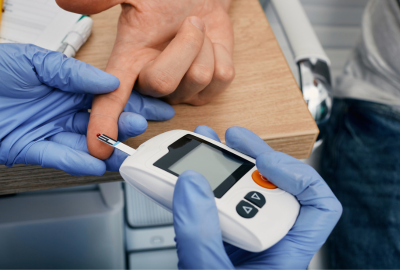High blood sugar is harmful to the body. Over time, high blood sugar damages the eyes, kidneys, and nerves. Individuals living with diabetes are also at higher risk of heart attacks and strokes.
However, diabetes-related complications can be prevented with proper care. You can reduce your risk of developing complications by making healthy changes to your lifestyle.
Some examples of healthy living habits include:
- Eating a healthy diet
- Staying active and maintaining a healthy body weight
- Taking your medications regularly to help keep blood sugar levels normal
- Maintaining your blood pressure and blood cholesterol levels in the healthy range
In addition, your doctor will arrange for you to undergo regular screening of your eyes, feet, and kidneys. This will detect complications early, allowing for timely intervention.
With appropriate care and management, many individuals with diabetes go on to enjoy long and fulfilling lives.




















